Great Plains Foundation’s Female Ranger Program in Botswana & Zimbabwe
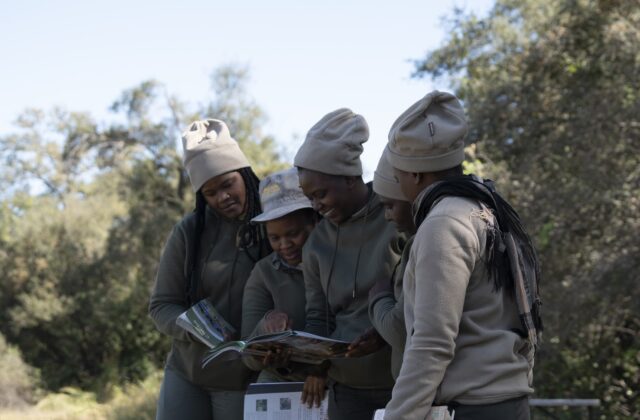
June 2022…// Great Plains Foundation, the charitable arm of award-winning conservation tourism organisation Great Plains, is proud to unveil its Female Ranger Program. Established by Great Plains founders and National Geographic filmmakers and Explorers-at-Large, Dereck and Beverly Joubert, the program started the training and deployment of local women in Botswana’s Okavango Delta and will see this program replicated in Zimbabwe’s Sapi Reserve.

In honor of World Female Ranger Week, taking place from June 23rd – 30th 2022, Great Plains Foundation can now share the details of this incredibly worthwhile endeavor. Commenting on the project, Great Plains Foundation co-founder Dereck Joubert said:
“I am thrilled to tell you about this incredible, and vital, project in honour of World Female Ranger Week. This initiative holds equally tremendous significance for gender equality and conservation, the challenging of gender norms, reducing human-wildlife conflict, and building the next generation of local change agents prepared to conserve African wildlife and wild landscapes. Women want to work in the conservation front-line sector and we have been overwhelmed by applications, a hundredfold more than the positions we advertised. Our commitment is to these women, these positions and to save the wildlife we are so passionate about protecting. ”
Project Outline
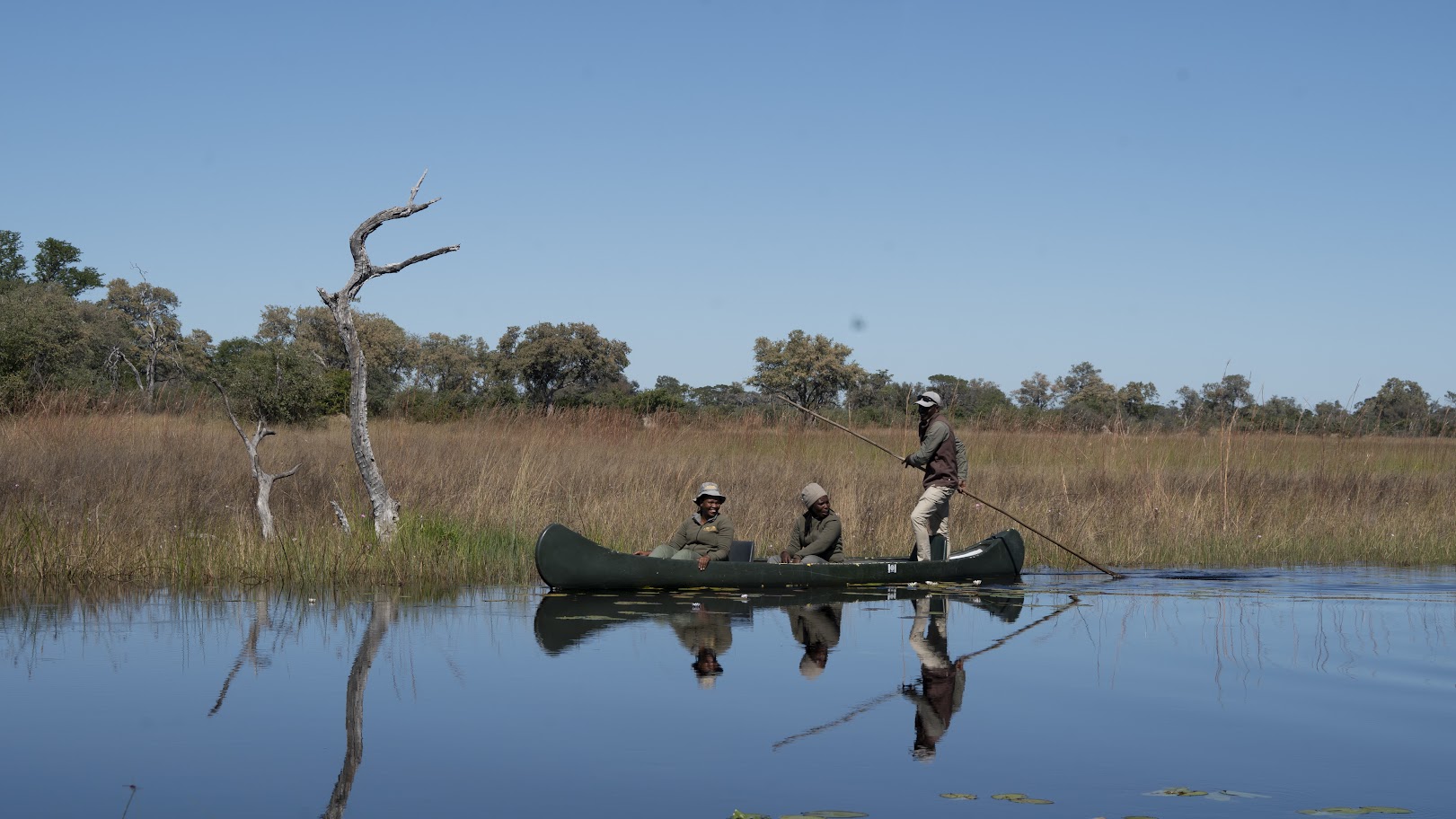
The Female Ranger Program trains and deploys female rangers in ecologically significant areas in Botswana (Okavango Delta) and will endeavor to do the same in Zimbabwe (Sapi Reserve, Zambezi National Park), which are home to the respective Great Plains camps Duba Plains and Tembo Plains in Zimbabwe.
Women living in rural communities surrounding these protected areas face limited schooling options, narrow career prospects, and gender oppression. However, if provided with the education, resources, and skill-building opportunities, these local Botswana and soon Zimbabwean women can become both the preeminent ambassadors for conservation in their local communities and leaders to young girls.
This project, under the leadership of Dereck and Beverly Joubert, provides formal capacity building, training, mentoring and the employment of 24 female rangers in Botswana’s Okavango Delta, over the next two years. Great Plains’ Female Ranger Team will be responsible for natural resource monitoring across these areas.

Why Female Rangers?
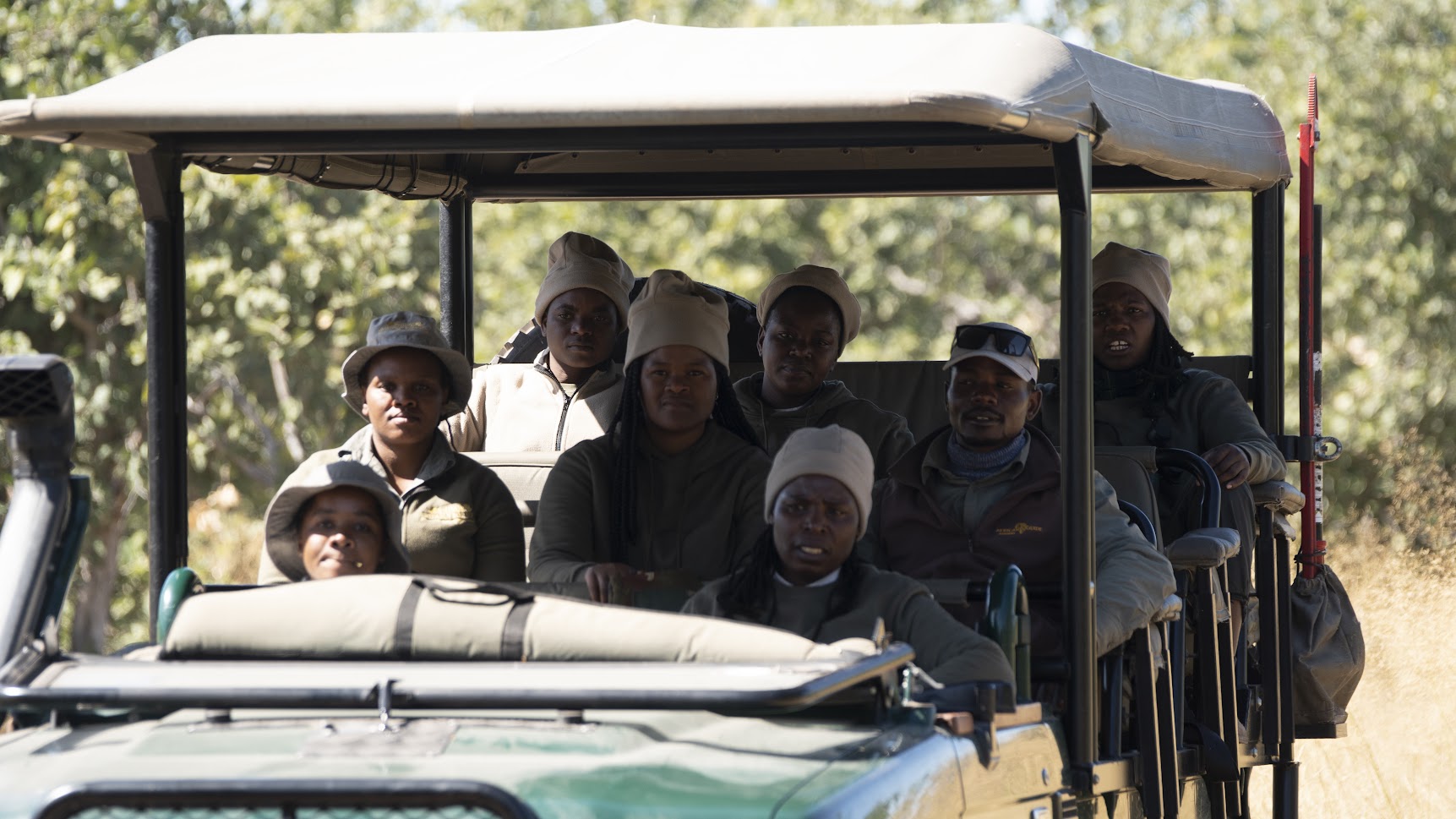
Female rangers have proven more capable of deescalating conflict, leading to more peaceable relationships with local populations. On average, female rangers have shown great commitment — loyal to protecting land and animals, akin to protecting their own children. As women tend to be more socially connected within their villages, female rangers may also receive more tips on poaching and illegal wildlife-orientated activities.
For women living in communities that border protected areas, becoming a wildlife monitor is a unique opportunity to develop a specialised skill set and creating some economic autonomy, contributing significantly to gender equity. Eventually, Great Plains envisions this project growing into a Wildlife and Environmental Field Skills-based certificate from a training institute in Botswana and Zimbabwe for women who, otherwise, may never have had a chance at further education. Great Plains also aims to amplify female citizens by providing female rangers with a platform on which to share their unique stories and educate others working in conservation, including Great Plains’ own team, who live apart from their cultural experience.
Current Status of Project
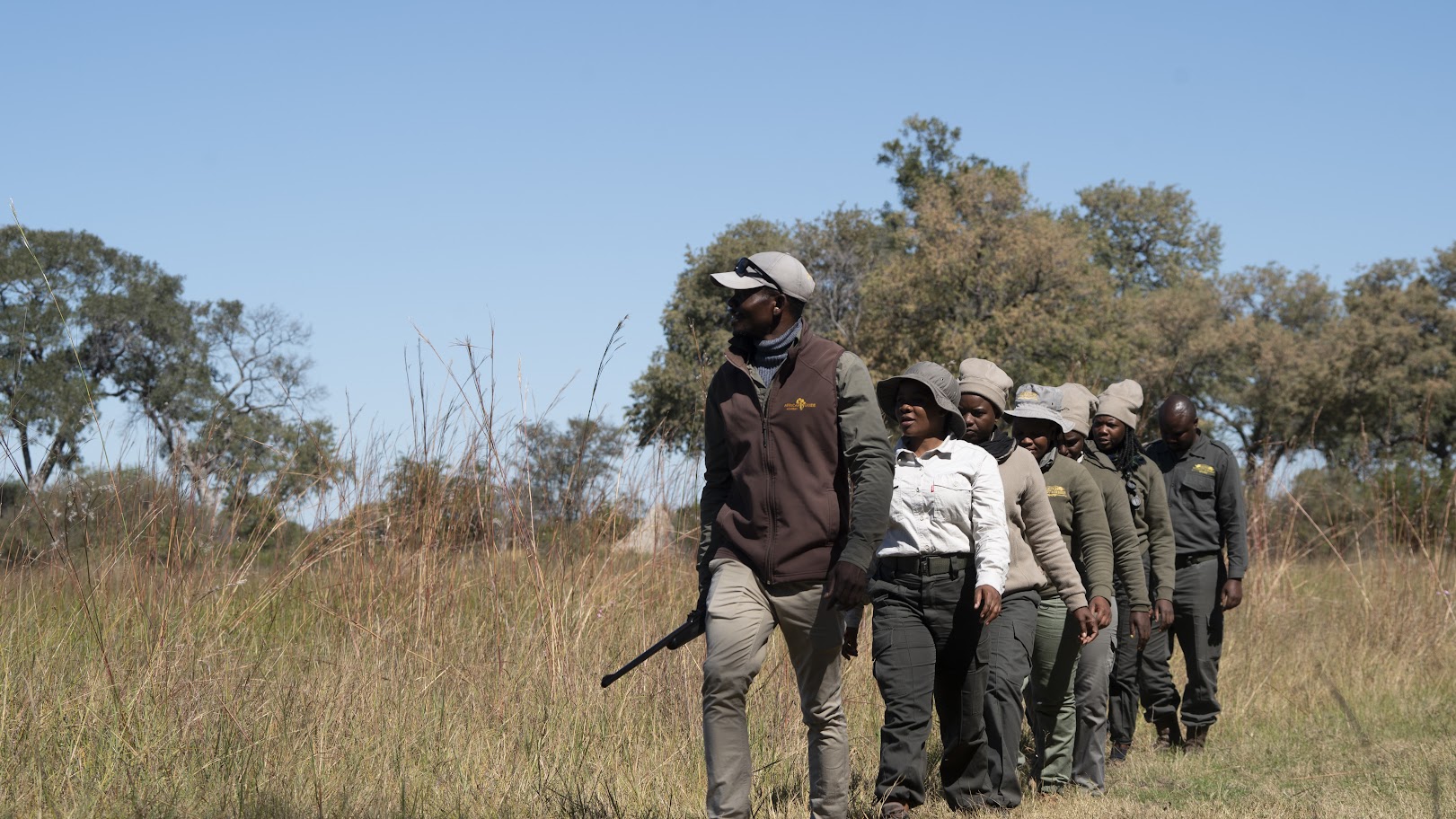
The employment and training of female rangers from rural communities on the fringe of the Okavango Delta has begun. Phase one is in motion – seven Motswana ladies, the Unit Leaders, have been selected from a large pool of enthusiastic applicants and have begun their six-month training programme, so far qualifying in computer literacy, nature wilderness training, vehicle maintenance and first aid level one. The female rangers are thriving and the trainers have commented that the support shown to one another’s learning and development is extraordinary.
The female rangers will operate patrol vehicles and various monitoring equipment, as well as wildlife crime activity. In patrols, female rangers will note ecology fluctuations, conduct animal data mapping, and observe movement patterns – all valuable tools vital in conserving the unique ecological community. These first teams of female rangers will also take on leadership roles for future training cohorts.
The Future
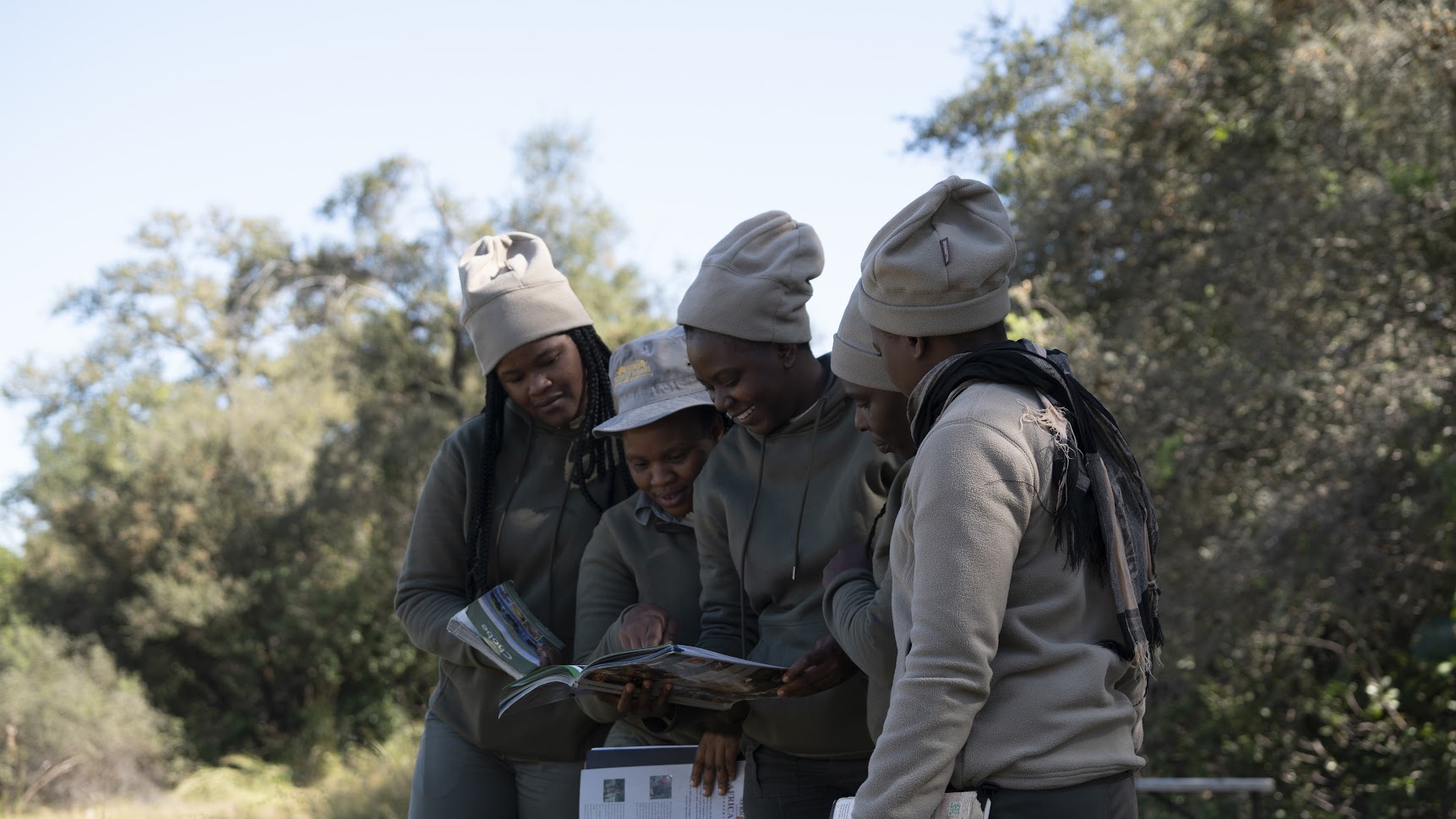
The female rangers will continue their training for another four months, undergoing education and skills development in scientific-based monitoring field skills, bushcraft, boat driving and maintenance, 4×4 driving, conservation-based report writing, management training and much more.
The next phase of the project is hiring and training a further 17 female rangers in Botswana under the Team Leaders. Hiring and training female ranger unit in Zimbabwe as part of the Great Plains’ Project ReWild Zambezi, an ambitious relocation of 3,000 animals, including elephant, lion, wild dogs and more, from an area of overpopulation to the Sapi Reserve, managed by Great Plains.
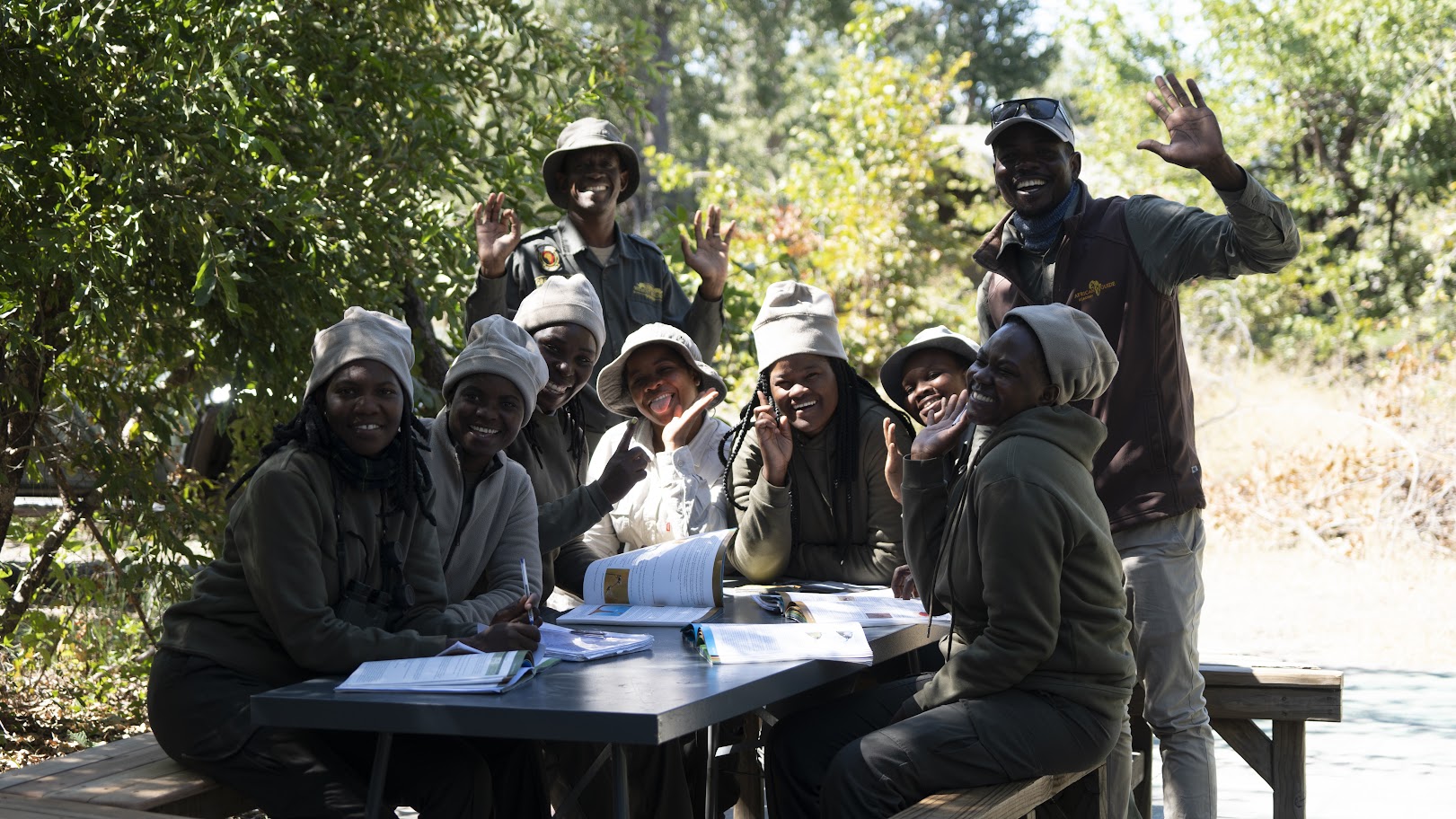
The long-term conservation impact of this project is equally powerful; pioneering the precedence for female rangers will ultimately enable the type of community buy-in necessary to preserve Africa’s most defining plant and animal species and directly contribute to Great Plains’ mission of advancing knowledge and protecting the wonders of the world.
Dereck Joubert adds: “There is no doubt: the world’s ecosystems are in a fragile state. Poaching and hunting are ever-increasing threats to the Africa we know. This initiative will fortify our defences and empower women. We have a timely opportunity to shift our strategy to better protect vulnerable species, environments, and people. Our Female Ranger Team will provide a unique opportunity for marginalised women to be seen and respected by their community and the world around them. We cannot stand to let poaching and hunting fragment our land, destroy our animals, and desensitise our communities. This step in the process is only the beginning; future iterations hold the potential to preserve vast landscapes and change the course of our planet’s future.”
 Travel Dreams Magazine
Travel Dreams Magazine